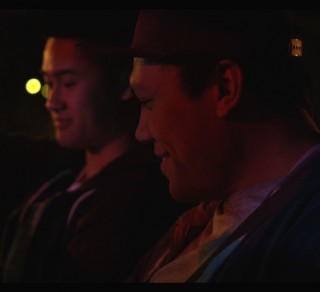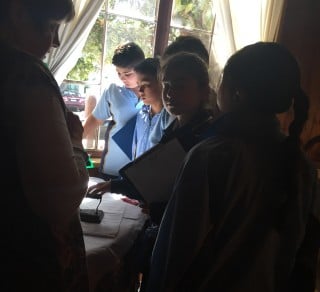Try visiting the interactive Court Room to get an idea of how a court works.
Click here to open the Interactive Court Room
Judge/Magistrate
The Judge presides over the court and deals with any legal issues that arise during the trial. He/She informs the jurors about their role and instructs them about what the law is. The Magistrate hears cases and makes decisions in the Magistrates’ Court and Children’s Court. They determine the order of proceedings, whether the defendant is guilty or not guilty and assign penalties to the defendant.
When you speak to a magistrate or judge, you should address them as ‘Your Honour’.
Defendant/Accused
In a Criminal Trial the person who has been charged with committing an offence is called the ‘accused’.In a Civil Trial the parties are called the plaintiff and the defendant:
Plaintiff
This is the person bringing the action, or ‘suing’ the other person.
Defendant
This is the person defending the action, or being ‘sued’.
These people are the reason why the court is “in session”.
Dock
The Dock is where the Defendant or person on trial stands before the court. At the conclusion of the trial they can be found guilty and taken into custody, or not guilty and they may leave the dock when directed. A non-custodial sentence means they do not have to go to gaol but may receive a fine, or an order to do community service.
Prosecuting Barrister
The Prosecuting Barrister creates a case against the Defendant to prove why they should be held responsible for a charge. They must stand up when addressing the Magistrate/Judge, questioning a witness or when ‘objecting’. They represent the interests of the Crown and or the person who brought the case to court i.e. the plaintiff. Solicitors aid Barristers in court by preparing supporting material, but they do not speak in court.
Defence Barrister
The Defence Barrister provides a defence case that shows why the Defendant is not responsible for the charge. They represent the interests of the Defendant. They must stand up when addressing the Magistrate/Judge, questioning a witness or when ‘objecting’. Solicitors aid Barristers in court by preparing supporting material, but they do not speak in court.
Witness
A witness is a person who is required to come to court to answer questions about a case. Before giving evidence, the witness promises to tell the truth. The information provided by witnesses becomes evidence, which the Magistrate/Judge and jury may use to make a judgment in the case.
Witness Box
Witnesses stand in the Witness Box to provide evidence for the Defence or Prosecution during the court session. They are ‘sworn in’ before they answer any questions and must promise the court to tell the truth by swearing an oath. If a Witness fails to tell the truth then they can be held in ‘contempt of court’ and fined or detained by the Magistrate/Judge.
Public Gallery
Court trials are usually open to the public. Members of the public are encouraged to attend trials to see for themselves how the courts operate. The expectation is that the public gallery will sit silently and observe the proceedings from the back of the room.
Jury
A jury consists of people whose names appear on the electoral roll. Jurors are selected for both civil and criminal cases in the County and Supreme Courts to ensure a ‘trial by peers’. The jury must listen to all the evidence and determine whether the accused is guilty or not guilty. They must then consider the evidence, in relation to the law, and finally make their decision. The jury must come to a decision unanimously or be in the majority. If they fail in this task then they are considered a ‘hung jury’ and the case must begin again with a new jury.
Bench Clerk (Magistrate’s and Children’s Courts)/Tipstaff (County and Supreme Courts)/Judge’s Associate
The Bench Clerk sits in front of the Magistrate and assists with administration and legal research. He/she announces the cases and calls people into court. Their job is to direct people where to stand, read the charges out (in a criminal proceeding) and administer the oath or affirmation to witnesses. The Tipstaff announces that the court is in session and swears in witnesses. An important duty of the tipstaff is to look after the jury. He or she escorts jury members into the courtroom and into the jury room, and deals with any practical matters for the jury. They are also responsible for ‘swearing in’ the witnesses by taking their oaths.




